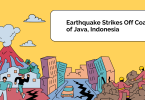Buddhist monks from across Asia have pledged to continue to strengthen ties between Buddhism and humanitarian work, and to collaborate with humanitarian actors, to work towards bringing about peace, prosperity and compassion to the world.
The declaration was announced at the end of a three-day retreat in Chiang Rai titled “Buddhism and Humanitarianism in Asia”. Co-hosted by the UN Refugee Agency and the Vimuttayalaya Foundation in Thailand, the retreat brought together the Foundation’s vision of engaged Buddhism and UNHCR’s focus on the links between faith and protection. More than 500 participants’ including monks, academics, and students attended from 13 countries including Bangladesh, Hong Kong, Indonesia, Japan, Laos, Myanmar, Sri Lanka, Thailand and Viet Nam.
“All religions, at the highest level, teach the unity of humanity,” said Dr Surin Pitsuwan, the former Secretary General of the Association of Southeast Asian Nations (ASEAN) and a practising Muslim, in his opening speech. “With a growing population and finite resources, we must ask how to protect and care for future generations.”
Indrika Ratwatte, the incoming Director of UNHCR’s Asia and Pacific bureau, cautioned: “Religious beliefs must not be allowed to become a ground for persecution and a source of displacement. The shared values common to different religious traditions present a strong framework for promoting tolerance and openness towards people of other faiths.”
He further noted that faith-based organisations can play an important part in seeking solutions to refugee situations by promoting reconciliation and peaceful co-existence.
With 250 million adherents in South East Asia, Buddhism is a primary religion in the region. Some of its central elements – empathy, compassion and non-discrimination – directly align with the mandate of UNHCR and other humanitarian organizations.
The Chiang Rai retreat sought to explore the commonalities in the perspectives of Buddhists and humanitarians on four issues: Responding to natural disasters, overcoming armed/communal conflict, social empowerment and environmental sustainability.
In break-out sessions, the participants shared good practices from their own countries relating to such issues as the use social media as a platform for positive change, community led responses, and the role of faith-based organisations in humanitarian settings. Dynamic discussions surrounding armed and communal conflict highlighted the importance of building trust in order to improve cooperation between different actors. Discussions emphasized the desirability of translating Buddhist teachings into concrete local actions. It was agreed that prioritizing the needs of the most vulnerable, including refugees, stateless persons, migrant workers and victims of national disasters and conflict is critical.
The President of the Vimuttayalaya Foundation, the Venerable V. Vajiramedhi, closed the retreat on Sunday with words of hope, observing that when people come together there are “many more hands to change the world.” He further encouraged participants to take actions that would allow this generation to be one of “compassion, love and sharing”.























